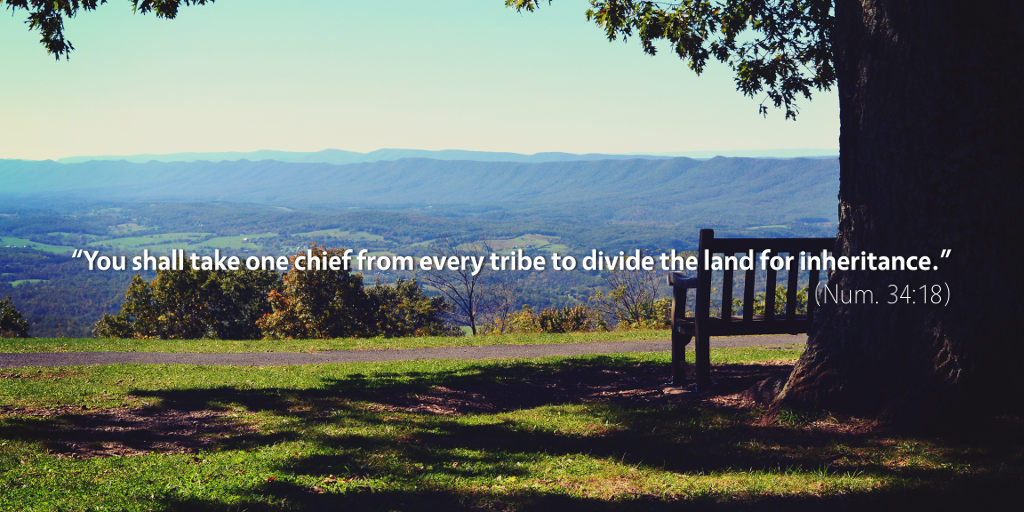Bible Readings for May 25th
Numbers 34 | Psalm 78:38–72 | Isaiah 26 | 1 John 4
In Numbers 34, Yahweh commands Moses to prepare Israel in two ways to enter into the Promised Land—first, by spelling out the boundaries of the land that Israel would inhabit and, second, by appointing a new set of tribal chiefs for Israel. The time is drawing nearer when Moses would die and also when Israel would take possession of the land that God had promised to give them as an inheritance.
These two topics, however, are closely tied together. The whole point for appointing chiefs among each of the tribes of Israel is to identify the men “who shall divide the land to you for inheritance” (Num. 34:17). So, Yahweh first identifies the two new leaders over the entire nation: Eleazar the priest and Joshua, the son of Nun. Then, Yahweh identifies leaders for each of the tribes of Israel except for the tribes of Reuben, Gad, and the half-tribe of Manasseh, who have already identified their inheritance east of the Jordan (Num. 34:13–15).
Dividing the land for Israel’s inheritance is a fascinating rationale for appointing tribal chiefs, since it is different from the reason given in Numbers 1:4–5, 44 for appointing chiefs in the previous generation. At that time, Yahweh told Moses to appoint chiefs among each of the tribes of Israel to help with the census—and remember that the purpose of the census was to help identify all the men among Israel who were able to go to war (Num. 1:3, 26:2). So, the tribal chiefs were appointed specifically for helping to raise up Israel’s army.
While the people of Israel have fought a few battles during their wilderness wanderings in the book of Numbers (14:39–45; 21:1–3, 21–30, 31–35; 25:16–18; 31:1–12), the real warfare will not begin until they enter the Promised Land. And yet, the focus has already shifted to the inheritance that lay beyond the fighting. Yahweh had promised to give them an inheritance, and, although they would need to drive the Canaanites out of the Promised Land, Yahweh sets their eyes on the prize before them—and not on the fighting.
We find an echo of this principle in the book of Ephesians, where Paul opens his letter by speaking not of our spiritual warfare but of the inheritance that we have already obtained in Christ, guaranteed by the Holy Spirit (Eph. 1:11–14). Jesus Christ himself has won the decisive victory at the cross, so Paul details neither the spiritual nature of our struggle nor our armor until the very end of the letter. We must fight, but our victory in Christ is a foregone conclusion.
Let us set our eyes, then, not on the struggle but on the prize set before us in Jesus Christ.
Podcast: Play in new window | Download (4.9MB) | Embed
Subscribe: Apple Podcasts | RSS | More

Scripture quotations are from The Holy Bible, English Standard Version copyright © 2001 by Crossway Bibles, a division of Good News Publishers. Used by permission. All rights reserved.


